Venue Checklist: Smart Tool for Successful Event Planning
Many issues make holding an event becomes quite difficult. One of the issues is finding the right venue. Without a venue suitable for the event you are about to hold, the event itself would not be as successful. An event planner must always prepare a venue checklist to ensure that every part needed by the event can be accommodated by its venue.
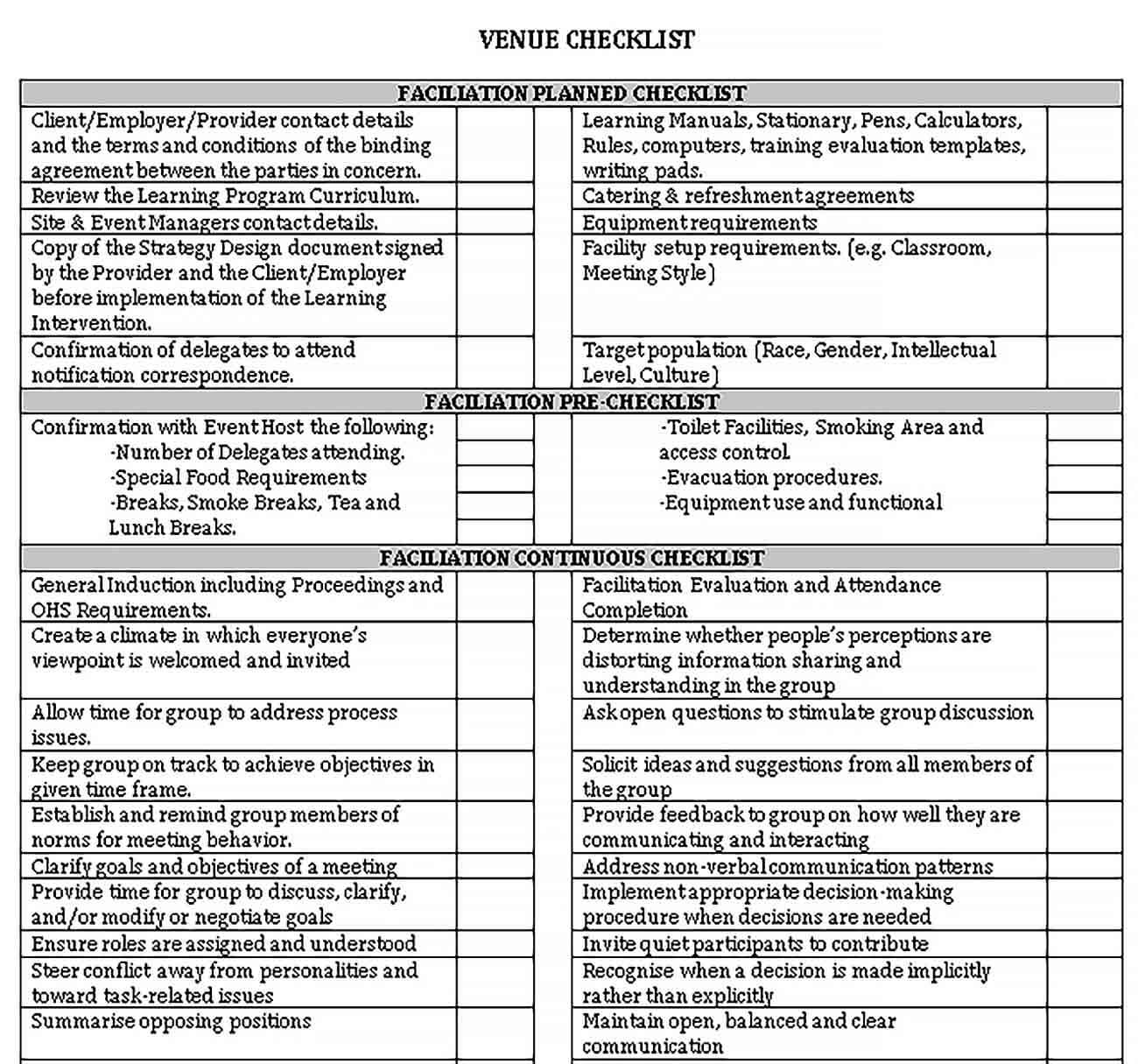
Venue Checklist Types
Here are some types of checklist available on this page.
- Location’s safety
The first checklist is prepared to inspect the safety of a location. It might be related to the building’s integrity such as its maximum capacity. Plumbing and electricity systems are possibly included in the checklist too. Venue’s disaster preparedness (including emergency exits) is often mentioned in such a list as well.
- Event components checklist
At times the venue checklist is related to the event aspects. As an example, the checklist may contain a stage, sound system, and monitor console for a concert event. In a wedding event, the list may include band, catering service, and decoration.
- Facilities checklist
Facilities provided in a venue need to undergo inspection once in a while too. The facilities include bathrooms, cooling systems, internet connection (if any), sound system, et cetera. This list is often used to check whether each facility is ready to be used and how well it functions.
- Maintenance checklist
For maintenance purposes, a venue may need to prepare a checklist. This checklist will show information about parts that need to receive maintenance work and the last time those aspects being taken care of. This list makes sure that the venue would always be at its top condition.
Venue Checklist Guidelines
Take a look at the following guidelines for filling in the venue checklist.
- Staying within the client’s budget range
When an event organizer is trying to choose a venue, it is important to always be considerate of the client’s budget range. The venue size and its facilities would determine its price. Thus, most of the time, compromising has to be done.
- Continuously reviewing the number of attendees
Any event organizer should know that knowing the exact number of attendees count is important. That way, it would be easier to allocate the right volume of services for attendees. As an example, if conference attendees are 360 people, the organizer should not only prepare a catering service for 300 people.
- Considering the main theme of the event
The venue chosen should always match the main theme of the event being held. It would be awkward to host a scientific conference in a barn but would be less so for a wedding, as an example.
- Listing all the activities that would be done
It is also important to list all the activities that will be done in an event. This step would ensure that a venue can handle all of the event’s proceedings.
Venue Checklist Policy Considerations
The event organizer should always take into account the policies of a venue. It would be beneficial for the venue owner and organizer to meet up and discuss this issue together. That way, there will not be any breach of policy and the event can be held successfully.
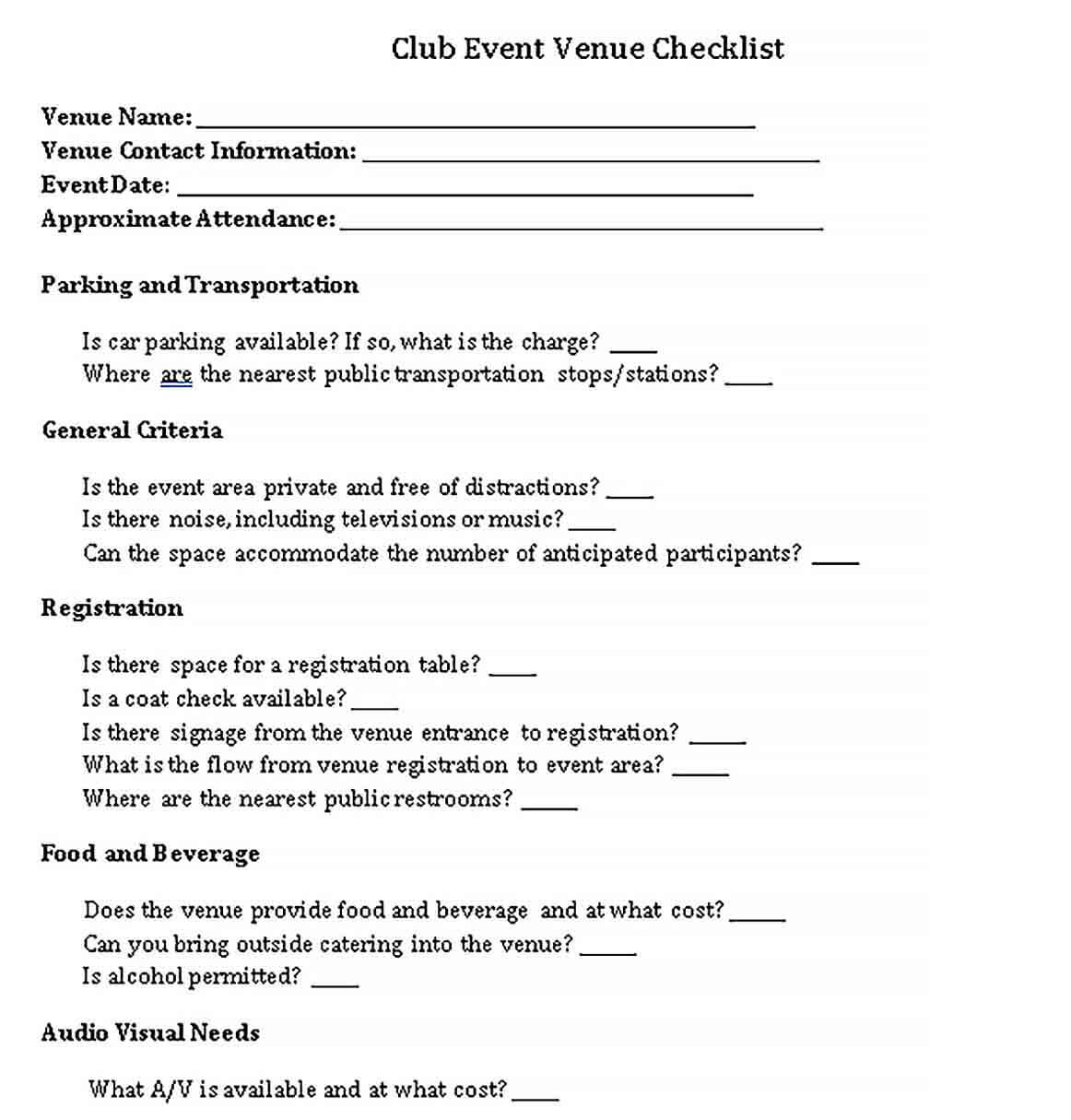
Venue Checklist Templates
Anyone who is looking for a great venue checklist to help with event organizing tasks should visit this page. There are various templates offered for free. They are downloadable and easy to edit.
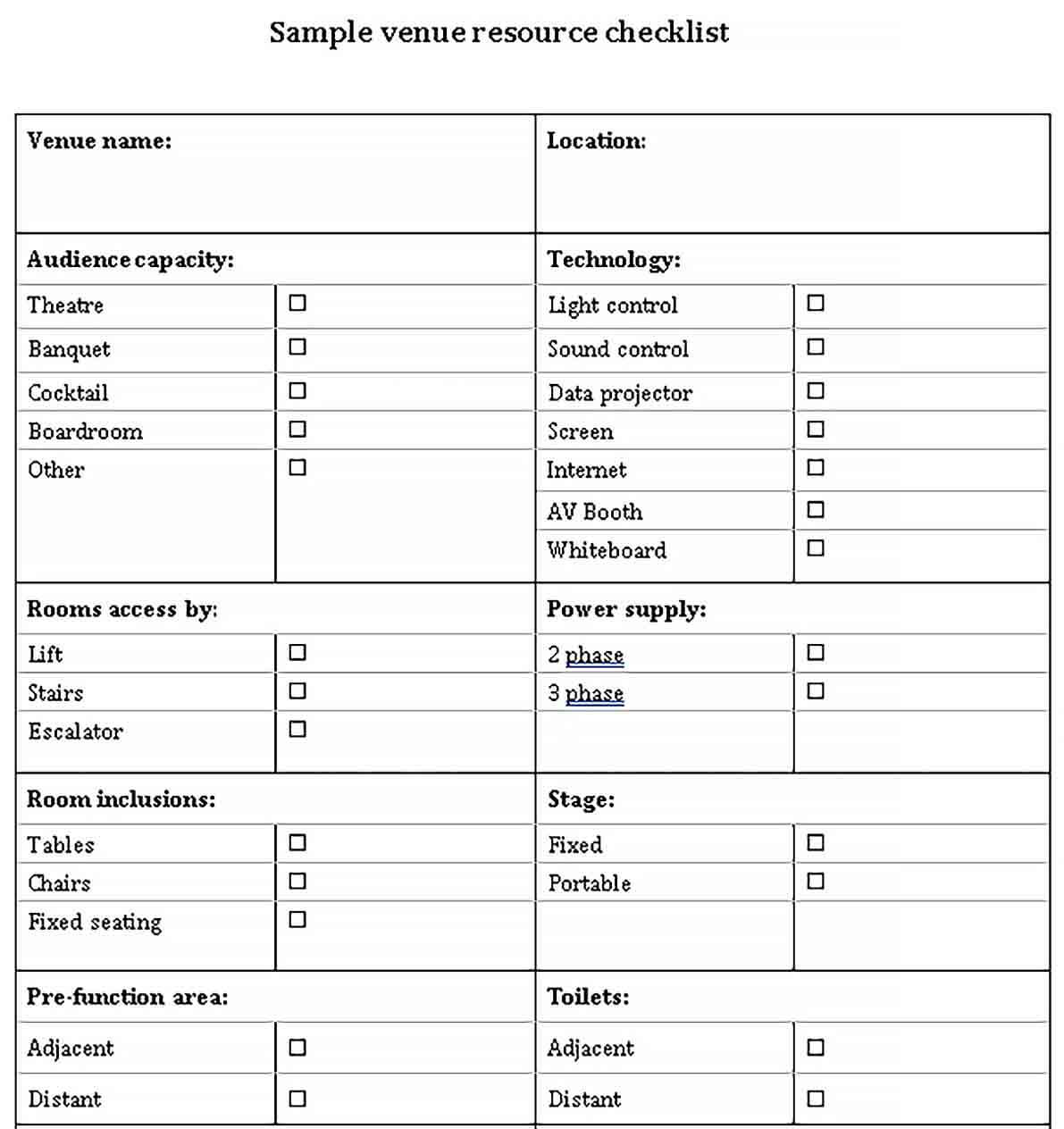
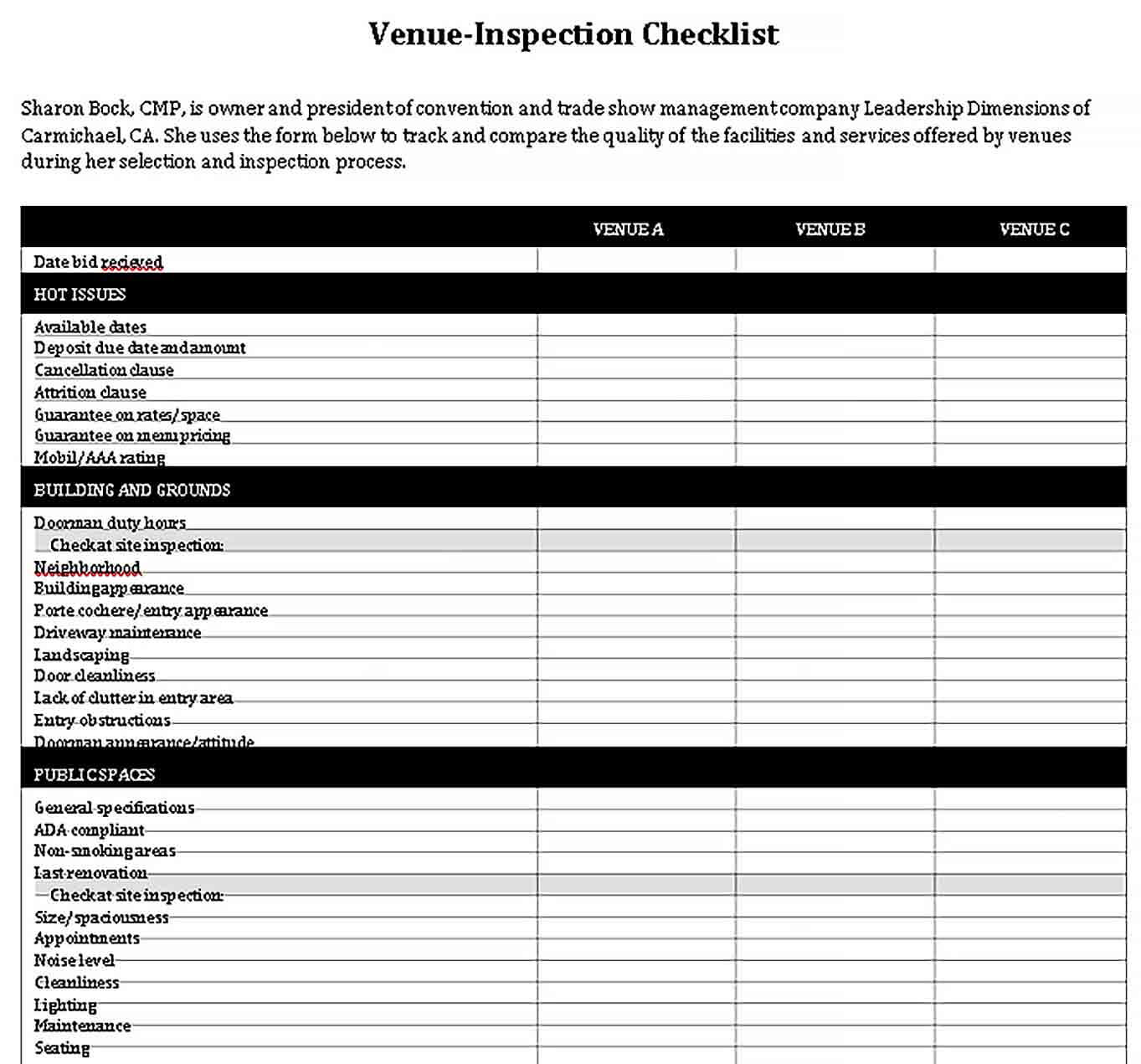
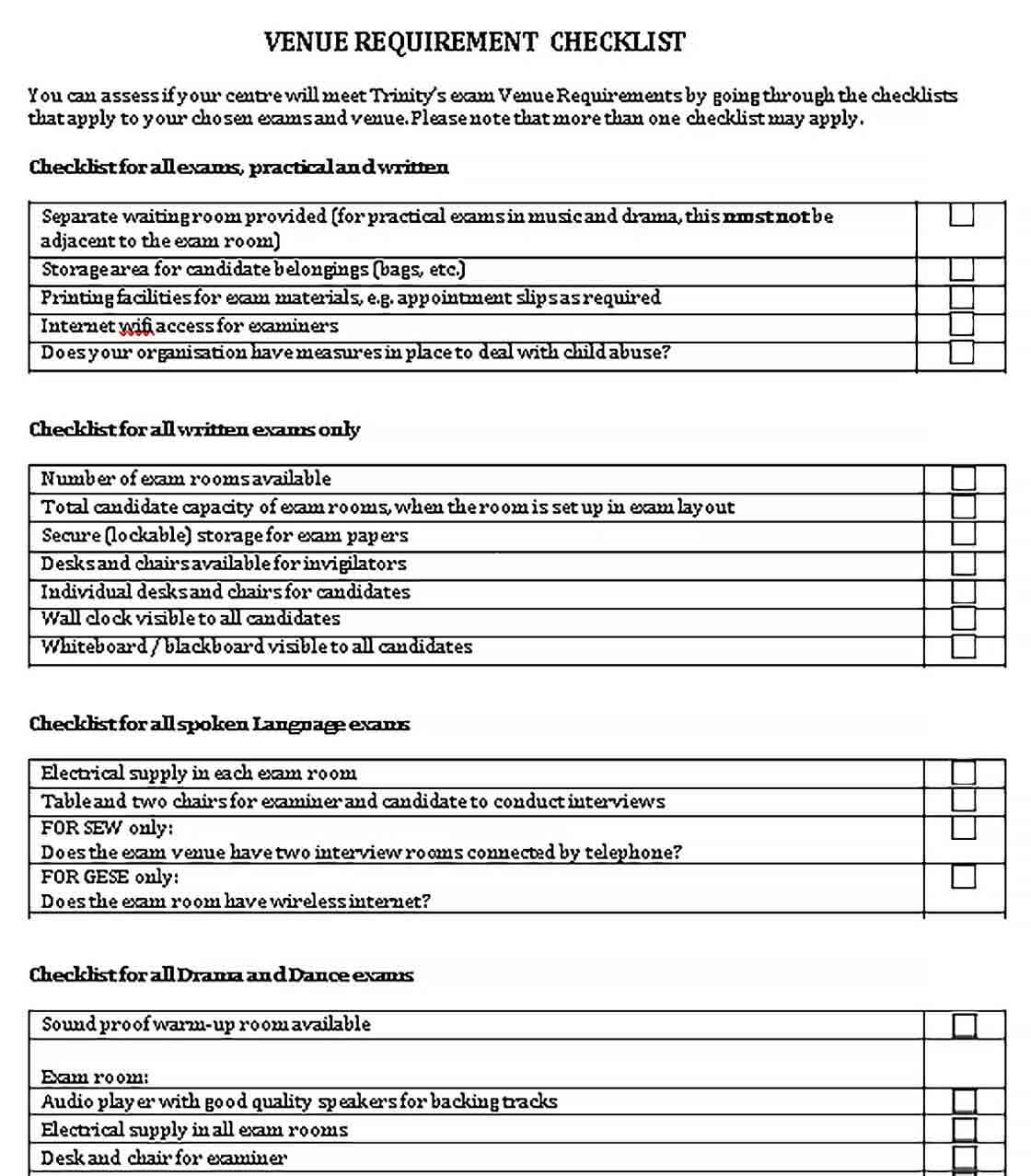
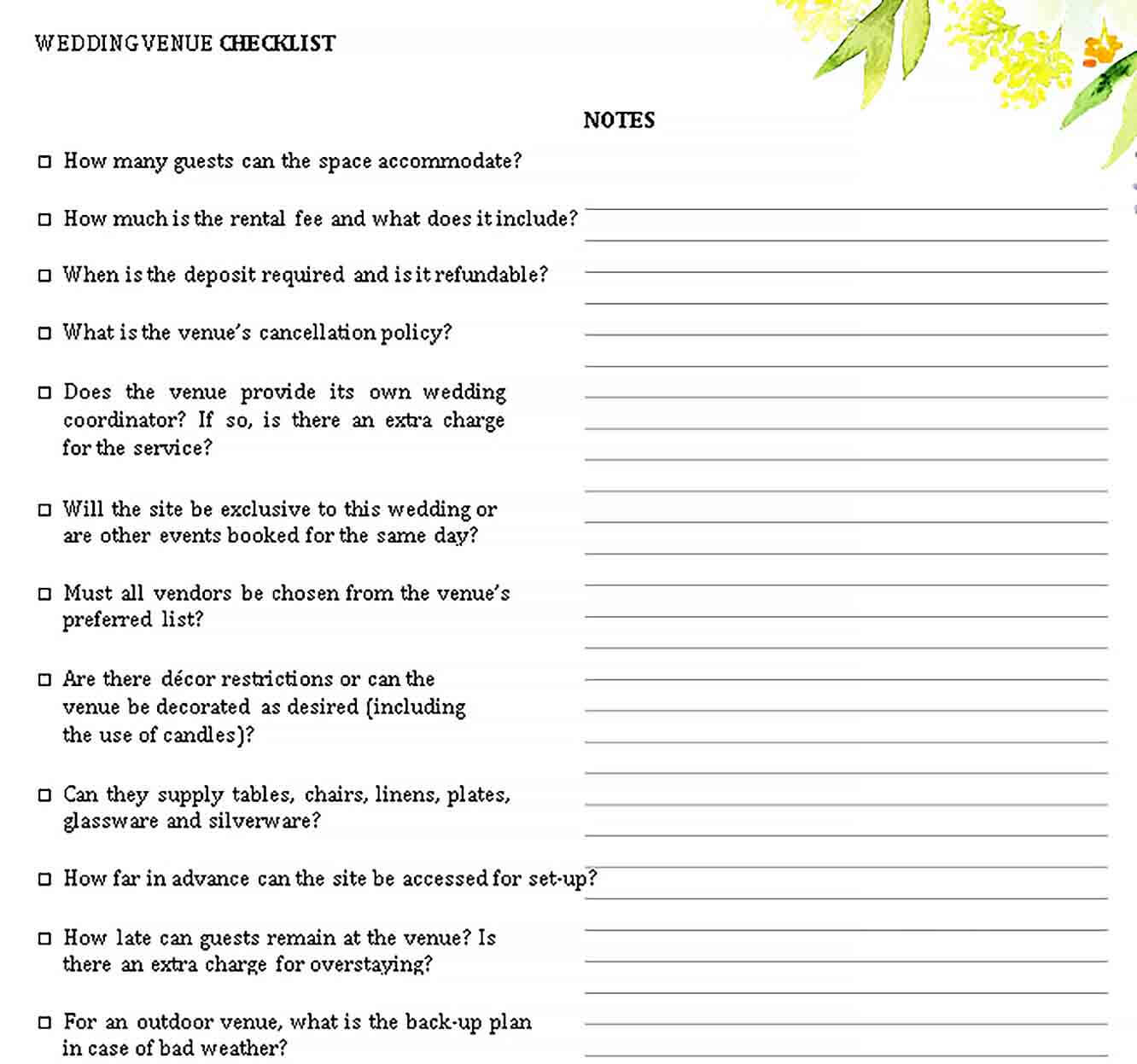
Similar Posts:
- Wedding Checklist Template
- Reservation Checklist Template
- Wedding Day Checklist Templates
- Drafting Checklist Template
- To Do Checklist Template
- Trade Show Checklist Template
- Seminar Checklist Template
- Dorm Room Checklist Template
- Weekly Checklist Template
- Event Planning Checklist Template
- Simple Wedding Checklist Template
- Opening Checklist Templates
- Best Maintenance Checklist Template
- Restaurant Checklist Template
- Building Security Checklist Template
- Packing Checklist Templates
- Vehicle Checklist Template
- Party Checklist Template